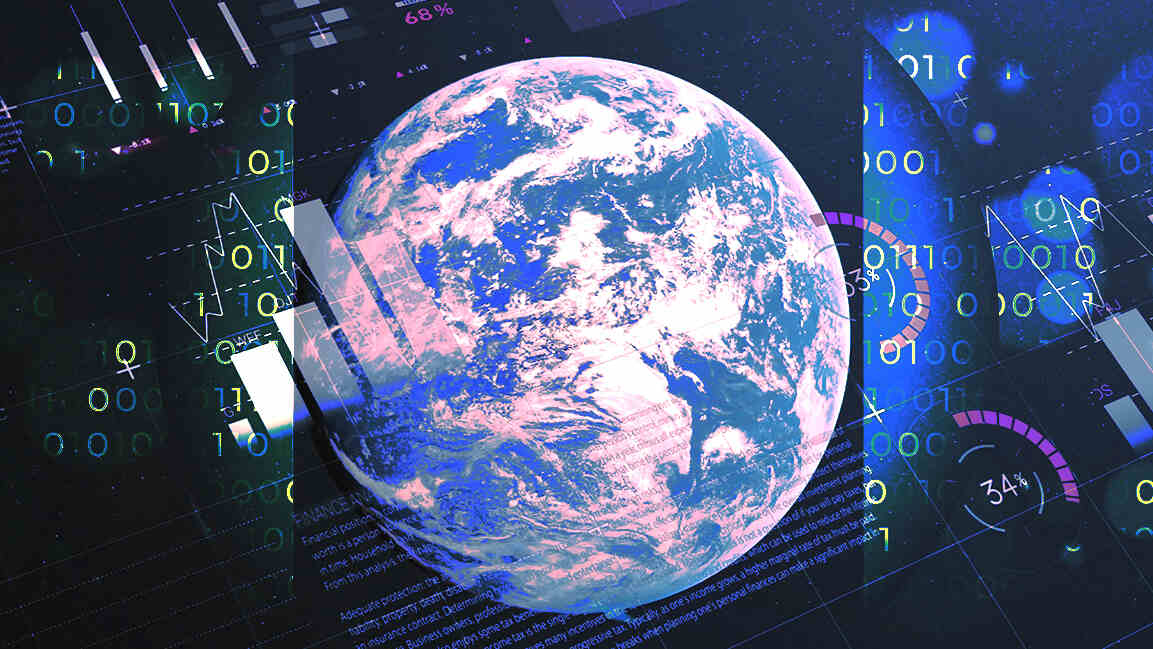- | 11:00 am
Inside Saudi Arabia’s mission to localize and build a self-sustaining space economy
Backed by the Public Investment Fund, Neo Space Group is building a homegrown space economy to advance Vision 2030’s goals of digital sovereignty and diversification.

Artificial intelligence and cybersecurity may dominate discussions about the future, but space is fast emerging as the next frontier shaping life on Earth. Not the distant cosmos, but the orbit that connects networks, powers navigation, and fuels the digital systems we rely on.
Once the domain of a few nations, space has become a vital part of the global economy, driving innovation, data intelligence, and new opportunities on the ground.
Leading that conversation is Martijn Blanken, CEO of Neo Space Group (NSG), a Public Investment Fund-backed company driving Saudi Arabia’s ambition to build a homegrown space economy.
Speaking after the launch of NeoMaps, an advanced geospatial platform, Blanken explained how the project marks a shift in how the Kingdom approaches its data and digital infrastructure. More than a mapping tool, NeoMaps intends to strengthen national capabilities in space-based technologies and ensure greater control over critical information.
The initiative is part of a wider move to localize satellite and data systems, which aligns with Saudi Arabia’s goals of technological self-reliance and digital sovereignty.
As governments and industries worldwide depend on foreign platforms for geospatial data, Saudi Arabia is taking steps to develop that capability domestically. The effort aligns with Vision 2030’s goal of diversifying the economy beyond fossil fuels and strengthening the Kingdom’s technological autonomy.
“Space is a very broad industry with many sub-industries. If you look at the geospatial industry, which is Earth observation or remote sensing, satellites orbit the Earth and take pictures and radar images,” Blanken said.
He added, “To make it more viable, you need to make sure that you use technology that translates these raw images into insights that governments and enterprises can use to make informed decisions about how to run their operations better.”
THE ROLE OF AI IN RETHINKING OPERATIONS
As space and data services grow more complex, artificial intelligence is starting to play a central role in how Neo Space Group manages its operations and serves clients. Blanken views AI not as a distant innovation but as a practical instrument for improving efficiency, accuracy, and decision-making.
“I look at many different ways. Obviously, the most boring example is the internal example of running our company more efficiently by using all the available data,” Blanken said.
He added, “But more exciting is the example I just used in the geospatial area where we have AI engines that constantly interpret the data being produced and turn that into tangible, actionable insights for our customers.”
AI, Blanken explained, also plays a role in optimizing in-flight connectivity services. “You want to make sure that the right connectivity at the right price is available for the right usage,” he said.
He further explained that AI also helps optimize in-flight connectivity by matching different types of internet use with the most suitable and cost-effective connection.
For example, email sending requires far less bandwidth and lower latency than a video call. AI-driven analytics can allocate faster or more cost-effective connections as needed, balancing performance with efficiency.
NeoMaps integrates satellite imagery, analytics, and visualization tools, serving security, civil, and commercial sectors and giving decision-makers actionable, data-driven insights.
“By adding specific information, it allows certain applications to become possible that are not possible with the generic mapping product because they simply don’t contain that information,” says Blanken.
BUILDING A SPACE ECONOMY FROM THE GROUND UP
Saudi Arabia’s space ambitions extend beyond satellites and sensors. They are closely linked to Vision 2030, the Kingdom’s roadmap for diversifying its economy beyond oil and building new technological and industrial capabilities.
“What we’re trying to do in the Kingdom of Saudi Arabia is to build a space economy. Currently, it’s quite a small industry,” Blanken noted. “The government, through its sovereign wealth, the PIF, has decided to establish the Neo Space Group, and its role is to be a catalyst to develop this ecosystem.”
The impact is already taking shape. Founded less than two years ago, Neo Space Group now employs 700 people across the Kingdom, many in roles that had never existed before.
“Many of these jobs weren’t there a year and a half ago. So that is an example of the way we contribute to it,” he said, adding that they provide services that are used by Saudi Arabian government institutions and enterprises that weren’t there before either.
On the economic front, Blanken noted that much of Saudi Arabia’s spending on satellite communications, navigation, and geospatial services currently flows overseas. The goal, he said, is to retain that investment domestically by building the necessary technical expertise and infrastructure within the Kingdom.
“In doing so, it creates a contribution to the GDP, but also creates a lot of jobs that weren’t there in the past,” he said.







































